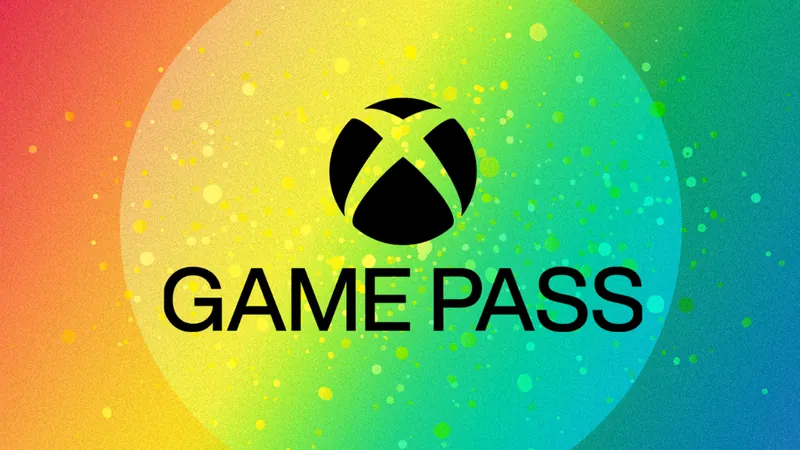
Arkane Studios Founder Calls Out Game Pass: 'Why Is No One Addressing This?'
2025-07-07
Author: Nur
In the wake of recent layoffs at Xbox, Raphael Colantonio, the founder of Arkane Studios—famous for hits like Dishonored and Prey—has taken a bold stand against the Game Pass subscription model, deeming it "unsustainable." His comments have ignited a heated discussion across the gaming community.
Colantonio, who left Arkane in 2017 to establish WolfEye Studios, posed a stark question on social media: "Why is no one talking about the elephant in the room? Cough cough (Game Pass)." His assertion that Game Pass is detrimental to the gaming industry has resonated with many insiders, particularly in light of recent cuts to key Xbox titles.
Colantonio elaborated on his concerns, arguing that while Microsoft’s financial backing might be misleading, there will come a time when the model fails to coexist with traditional sales structures. He questioned how this subscription format could balance itself with other revenue models, suggesting that it either threatens competitors or risks collapse.
The debate around Game Pass has long been polarizing. Some industry veterans view the service as either a boon for small developers or a looming threat to the ecosystem. In a testimony during the high-stakes Xbox-FTC trial over Microsoft’s $69 billion acquisition of Activision Blizzard, former PlayStation leader Jim Ryan noted that most publishers despise Game Pass, branding it "value destructive." Conversely, Xbox head Phil Spencer defended the service back in 2021, calling it sustainable and key to the company’s growth strategy. But after a series of recent game cancellations—including the highly anticipated Perfect Dark reboot—questions regarding Game Pass’s future are resurfacing.
Several industry figures are backing Colantonio's claims, including Michael Douse, publishing director at Larian Studios, who expressed skepticism over the long-term viability of the funding model. "The infinite money thing never made any sense," he shared, highlighting the precariousness of relying on deep-pocketed investors.
Colantonio went on to critique Microsoft's shifting stance regarding sales post-Game Pass release. As for their aggressive strategy, he believes that once Microsoft achieves market domination, gamers might find themselves facing higher subscription fees and a decline in quality.
Curiously, while Microsoft continues to push Game Pass, Colantonio argues the reality is stark: the service is not yet profitable. He pointed out that massive investments in acquiring content—including major deals with Bethesda and Activision Blizzard—often go unnoticed in corporate calculations.
The allure of Game Pass for gamers lies in its unparalleled value, offering access to a vast library of games for a relatively low price. However, as Colantonio warned, such an attractive offer is unsustainable long-term, risking the gaming experience once market competition diminishes.
As Microsoft has remained vague about Game Pass’s exact performance metrics, industry insiders and gamers alike are left wondering whether this subscription model can truly endure. Phil Spencer acknowledged that while Game Pass is a "healthy option" for many, it isn't suitable for everyone. He envisions a future where gamers have choices, ensuring titles remain available for purchase outside the subscription network.
As the conversation surrounding Game Pass continues to develop, one thing remains clear: the gaming industry will have to reckon with its future in a subscription-driven landscape, shaped by voices like Colantonio's.




 Brasil (PT)
Brasil (PT)
 Canada (EN)
Canada (EN)
 Chile (ES)
Chile (ES)
 Česko (CS)
Česko (CS)
 대한민국 (KO)
대한민국 (KO)
 España (ES)
España (ES)
 France (FR)
France (FR)
 Hong Kong (EN)
Hong Kong (EN)
 Italia (IT)
Italia (IT)
 日本 (JA)
日本 (JA)
 Magyarország (HU)
Magyarország (HU)
 Norge (NO)
Norge (NO)
 Polska (PL)
Polska (PL)
 Schweiz (DE)
Schweiz (DE)
 Singapore (EN)
Singapore (EN)
 Sverige (SV)
Sverige (SV)
 Suomi (FI)
Suomi (FI)
 Türkiye (TR)
Türkiye (TR)
 الإمارات العربية المتحدة (AR)
الإمارات العربية المتحدة (AR)